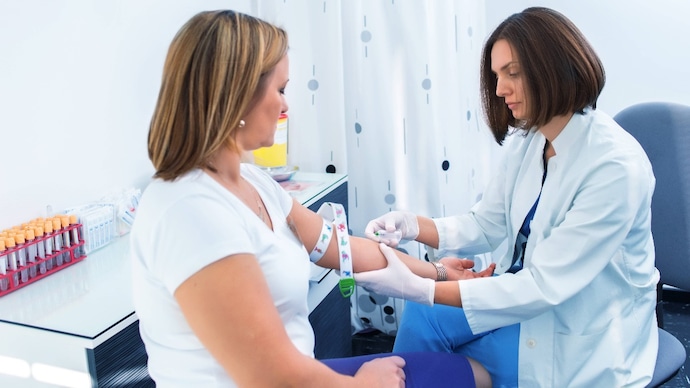A blood test can predict heart disease risk in women up to age 30
Women should start getting screened for heart disease risk and considering preventive medications after age 30, rather than waiting until menopause, new research suggests.

Women should assess their heart disease risk and consider preventive medications as early as age 30, rather than waiting until after menopause, according to new research.
The study, presented at the European Society of Cardiology’s annual meeting in London, is the first to show that a simple blood test can predict a woman’s risk of heart disease over the next 30 years.
Dr. Paul Ridker of Brigham and Women’s Hospital in Boston, the study’s lead author, emphasized the broad implications for therapies, including cholesterol-lowering and anti-inflammatory drugs.
Current guidelines recommend women wait until age 60 or 70 to consider preventive treatments, but these findings suggest the need for earlier interventions.
The study analyzed data from 27,939 participants in the Women’s Health Initiative Study who underwent blood tests for low-density lipoprotein cholesterol (LDL-C), high-sensitivity C-reactive protein (hsCRP) and lipoprotein(a) between 1992 and 1995.
Women with the highest levels of these markers had a significantly increased risk of major cardiovascular events, such as heart attack or stroke, over the next three decades.
Notably, women with high levels of all three markers were 2.6 times more likely to have a major cardiovascular event and 3.7 times more likely to have a stroke.
These findings, published in the New England Journal of Medicine, underscore the importance of early and personalized treatment.
While drugs to lower LDL-C and hsCRP are widely available, treatments to lower lipoprotein(a) are still under development. Lifestyle changes, such as regular exercise and quitting smoking, may also be beneficial.
“In recent years, we have learned more about how elevated levels of inflammation may work with lipids to increase the risk of cardiovascular disease. This helps explain why lower levels are often better,” said Ahmed A.K. Hasan, MD, medical officer and program director at the National Heart, Lung, and Blood Institute (NHLBI) at the National Institutes of Health.
The study included primarily white American women, but Ridker said the findings may have even greater impact on Black and Hispanic women, who often face higher rates of overlooked and untreated inflammation.
He called for universal screening for hsCRP and lipoprotein(a) alongside the already standard cholesterol screening.






